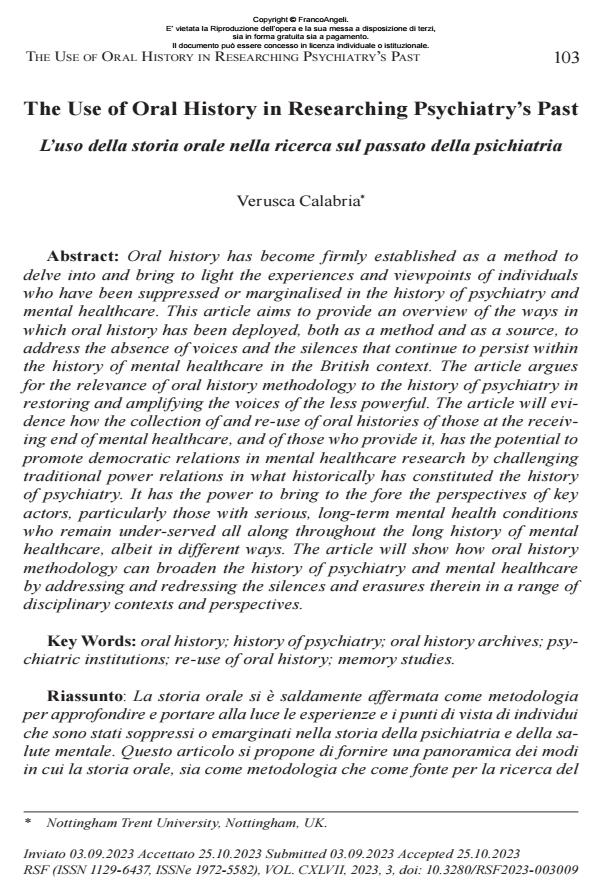The Use of Oral History in Researching Psychiatry’s Past
Journal title RIVISTA SPERIMENTALE DI FRENIATRIA
Author/s Verusca Calabria
Publishing Year 2023 Issue 2023/3
Language English Pages 16 P. 103-118 File size 696 KB
DOI 10.3280/RSF2023-003009
DOI is like a bar code for intellectual property: to have more infomation
click here
Below, you can see the article first page
If you want to buy this article in PDF format, you can do it, following the instructions to buy download credits

FrancoAngeli is member of Publishers International Linking Association, Inc (PILA), a not-for-profit association which run the CrossRef service enabling links to and from online scholarly content.
Oral history has become firmly established as a method to delve into and bring to light the experiences and viewpoints of individuals who have been suppressed or marginalised in the history of psychiatry and mental healthcare. This article aims to provide an overview of the ways in which oral history has been deployed, both as a method and as a source, to address the absence of voices and the silences that continue to persist within the history of mental healthcare in the British context. The article argues for the relevance of oral history methodology to the history of psychiatry in restoring and amplifying the voices of the less powerful. The article will evidence how the collection of and re-use of oral histories of those at the receiving end of mental healthcare, and of those who provide it, has the potential to promote democratic relations in mental healthcare research by challenging traditional power relations in what historically has constituted the history of psychiatry. It has the power to bring to the fore the perspectives of key actors, particularly those with serious, long-term mental health conditions who remain under-served all along throughout the long history of mental healthcare, albeit in different ways. The article will show how oral history methodology can broaden the history of psychiatry and mental healthcare by addressing and redressing the silences and erasures therein in a range of disciplinary contexts and perspectives.
Keywords: oral history; history of psychiatry; oral history archives; psychiatric institutions; re-use of oral history; memory studies.
Verusca Calabria, The Use of Oral History in Researching Psychiatry’s Past in "RIVISTA SPERIMENTALE DI FRENIATRIA" 3/2023, pp 103-118, DOI: 10.3280/RSF2023-003009